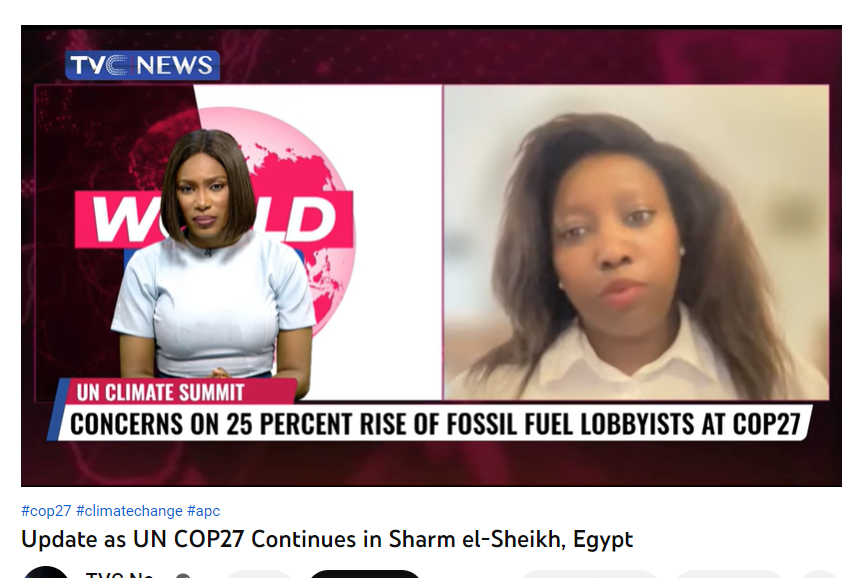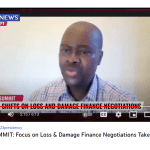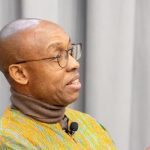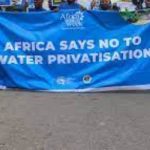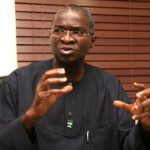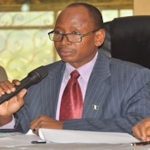African countries have been urged to be wary of making deals with Lobbyists of the fossil fuel industry who have numbered over 936 at the United Nations Conference of Parties climate Change Conference at the Egyptian resort of Sharm El Sheik.
Hellen Neima, Director African Climate Campaign, Corporate Accountability who is also a participant at the United Nations Climate Change Conference, COP 27, at the Egyptian resort of Sharm El Sheik, said the fossil fuel lobbyists and the global North Countries do not mean well for Africa.
She added that making deals now will be counter productive for African countries as it makes no financial sense to do so.
She posited that the proposals that have been making the rounds at the conference from the Global North Countries is nothing short of disastrous and make no sense whatsoever.
She wondered how one can expect to sell Carbon from one country to another.
Read More Below…..
“I mean, it’s appalling, but also not surprising. UN FCC lacks proper measures on how to keep out such polluters. Out of these talks, there are no proper measures, there’s no conflict of interest policy.
Anybody who has interest in anything can come here. Some people call it short of a marketplace. And so many of us are not surprised about what is happening and looking at how the talks are going, even recently, three days into the talk, we saw the African Climate Market Initiative being launched and the hand of the fossil fuel industry and the big polluters is definitely into this.
What this initiative basically is saying that they want to do carbon markets and offsets, meaning that they will continue polluting and having business as usual and offsetting their carbon emissions through African governments that pollute less.
Of course, this is not a real solution. You cannot sell carbon or air from one part of the world to another. What needs to happen is real solutions. Global north governments need to reduce emissions at source. But having these lobbyists moving around the corridors of UNFCC COP 27 with very few activists and even those where they are being gagged from talking is really disturbing, but again, not surprising.
So we’re doing the best we can as activists that are here on the ground and demanding they need to proceed, that they do need to keep big polluters out. We’re demanding that they have an accountability framework to exclude such organizations and individuals that have vested interests. And just seeing from the last COP of what happened the involvement in COP 27, We took an initiative with several of our African partners, including corporate accountability and public participation that is based in Nigeria, to do a frontline community. Report which basically documents the plot of frontline communities in several African countries to remind our governments who are here what is actually happening back home so that they don’t get into business with these industries.
But it’s unfortunate that some of them are getting into that fish net. And we’ve seen things like the carbon market initiative. God knows what else is going to come out of this.
I mean, like I said, we already see the outcomes of what is coming out of these. If you see things like this carbon market initiatives being launched, it’s sure that they have a hand in it. And these are the same lobbyists and the same Global North governments that have refused to pay their historical debt to Global South Countries, that have refused to honor their financial obligations. And so they have found a way of commodifying carbon and convincing African governments that if you sell us your carbon credit, then you’ll make money out of this, which is not only a real solution, but it’s also not financially viable.
I think the last time I checked, in the World Bank market, a ton of carbon is $5. Imagine how much they produce with a ton of carbon and how much they want to sell to African government. Let’s look at it in a financial sense, it’s not going to make any sense, but this is what they’re doing right now and it’s very disturbing that that’s how the process is going and the world is watching and it’s sad.
Our future is really in question with such people all singing in the corridors of the UN FCC.
Polluters are basically bankrolling this whole process. Like I said, if you were at Sharm El Sheik, you’ll see a marketplace where governments, and especially global south governments are just making deals with these people.
They have the money, they have the power and it’s quite unfortunate that they are the majority of people here, the UFCC really has to put their foot down and come up with an accountability framework that is something that is very important. If you look at other frameworks, like for example the tobacco control from the United Nations, from Tobacco control, they have a policy on article 5.3 that clearly kicks off the tobacco industry for being part of the negotiations.
But in UNFCC we do not have that. And you know, a friend of mine made me laugh the other day. Like you cannot invite the arsonists that put your house on fire to come and help you put it out. But that’s what is happening in the United Nations COP 27 and that is sad.
There needs to be a framework like many other UN conventions that do have frameworks that have a conflict of interest aspect to it. You have to perceive it to take this very seriously. Otherwise you’re going to have watered down climate ambitions, watered down climate actions and watered down climate policies and we really do have one as a fixed price argument.
So it’s sad, but it’s not too late. I’m very happy that for the most part the climate activists actually building power even as we’re here and calling out democracy, calling out government, calling out the big polluters that are making this process unbearable and destroying our world.
So the most we have is power among ourselves and people always win. So people power is what we’re pushing for while drawing and hoping and demanding. The UNFCC looks at it as we’re seeing it and we understand that this lobby came in from 29 different countries.
I mean if there’s any action or any commitment then it means that they’re making losses. These corporations are here to make money. They’ve not come to see any measures being implemented. So they will do all they can to water down and suppress any real action that is coming out of this place”.
African countries have been urged to be wary of making deals with Lobbyists of the fossil fuel industry who have numbered over 936 at the United Nations Conference of Parties climate Change Conference at the Egyptian resort of Sharm El Sheik.
Hellen Neima, Director African Climate Campaign, Corporate Accountability who is also a participant at the United Nations Climate Change Conference, COP 27, at the Egyptian resort of Sharm El Sheik, said the fossil fuel lobbyists and the global North Countries do not mean well for Africa.
She added that making deals now will be counter productive for African countries as it makes no financial sense to do so.
She posited that the proposals that have been making the rounds at the conference from the Global North Countries is nothing short of disastrous and make no sense whatsoever.
She wondered how one can expect to sell Carbon from one country to another.
Read More Below…..
“I mean, it’s appalling, but also not surprising. UN FCC lacks proper measures on how to keep out such polluters. Out of these talks, there are no proper measures, there’s no conflict of interest policy.
Anybody who has interest in anything can come here. Some people call it short of a marketplace. And so many of us are not surprised about what is happening and looking at how the talks are going, even recently, three days into the talk, we saw the African Climate Market Initiative being launched and the hand of the fossil fuel industry and the big polluters is definitely into this.
What this initiative basically is saying that they want to do carbon markets and offsets, meaning that they will continue polluting and having business as usual and offsetting their carbon emissions through African governments that pollute less.
Of course, this is not a real solution. You cannot sell carbon or air from one part of the world to another. What needs to happen is real solutions. Global north governments need to reduce emissions at source. But having these lobbyists moving around the corridors of UNFCC COP 27 with very few activists and even those where they are being gagged from talking is really disturbing, but again, not surprising.
So we’re doing the best we can as activists that are here on the ground and demanding they need to proceed, that they do need to keep big polluters out. We’re demanding that they have an accountability framework to exclude such organizations and individuals that have vested interests. And just seeing from the last COP of what happened the involvement in COP 27, We took an initiative with several of our African partners, including corporate accountability and public participation that is based in Nigeria, to do a frontline community. Report which basically documents the plot of frontline communities in several African countries to remind our governments who are here what is actually happening back home so that they don’t get into business with these industries.
But it’s unfortunate that some of them are getting into that fish net. And we’ve seen things like the carbon market initiative. God knows what else is going to come out of this.
I mean, like I said, we already see the outcomes of what is coming out of these. If you see things like this carbon market initiatives being launched, it’s sure that they have a hand in it. And these are the same lobbyists and the same Global North governments that have refused to pay their historical debt to Global South Countries, that have refused to honor their financial obligations. And so they have found a way of commodifying carbon and convincing African governments that if you sell us your carbon credit, then you’ll make money out of this, which is not only a real solution, but it’s also not financially viable.
I think the last time I checked, in the World Bank market, a ton of carbon is $5. Imagine how much they produce with a ton of carbon and how much they want to sell to African government. Let’s look at it in a financial sense, it’s not going to make any sense, but this is what they’re doing right now and it’s very disturbing that that’s how the process is going and the world is watching and it’s sad.
Our future is really in question with such people all singing in the corridors of the UN FCC.
Polluters are basically bankrolling this whole process. Like I said, if you were at Sharm El Sheik, you’ll see a marketplace where governments, and especially global south governments are just making deals with these people.
They have the money, they have the power and it’s quite unfortunate that they are the majority of people here, the UFCC really has to put their foot down and come up with an accountability framework that is something that is very important. If you look at other frameworks, like for example the tobacco control from the United Nations, from Tobacco control, they have a policy on article 5.3 that clearly kicks off the tobacco industry for being part of the negotiations.
But in UNFCC we do not have that. And you know, a friend of mine made me laugh the other day. Like you cannot invite the arsonists that put your house on fire to come and help you put it out. But that’s what is happening in the United Nations COP 27 and that is sad.
There needs to be a framework like many other UN conventions that do have frameworks that have a conflict of interest aspect to it. You have to perceive it to take this very seriously. Otherwise you’re going to have watered down climate ambitions, watered down climate actions and watered down climate policies and we really do have one as a fixed price argument.
So it’s sad, but it’s not too late. I’m very happy that for the most part the climate activists actually building power even as we’re here and calling out democracy, calling out government, calling out the big polluters that are making this process unbearable and destroying our world.
So the most we have is power among ourselves and people always win. So people power is what we’re pushing for while drawing and hoping and demanding. The UNFCC looks at it as we’re seeing it and we understand that this lobby came in from 29 different countries.
I mean if there’s any action or any commitment then it means that they’re making losses. These corporations are here to make money. They’ve not come to see any measures being implemented. So they will do all they can to water down and suppress any real action that is coming out of this place”.
African countries have been urged to be wary of making deals with Lobbyists of the fossil fuel industry who have numbered over 936 at the United Nations Conference of Parties climate Change Conference at the Egyptian resort of Sharm El Sheik.
Hellen Neima, Director African Climate Campaign, Corporate Accountability who is also a participant at the United Nations Climate Change Conference, COP 27, at the Egyptian resort of Sharm El Sheik, said the fossil fuel lobbyists and the global North Countries do not mean well for Africa.
She added that making deals now will be counter productive for African countries as it makes no financial sense to do so.
She posited that the proposals that have been making the rounds at the conference from the Global North Countries is nothing short of disastrous and make no sense whatsoever.
She wondered how one can expect to sell Carbon from one country to another.
Read More Below…..
“I mean, it’s appalling, but also not surprising. UN FCC lacks proper measures on how to keep out such polluters. Out of these talks, there are no proper measures, there’s no conflict of interest policy.
Anybody who has interest in anything can come here. Some people call it short of a marketplace. And so many of us are not surprised about what is happening and looking at how the talks are going, even recently, three days into the talk, we saw the African Climate Market Initiative being launched and the hand of the fossil fuel industry and the big polluters is definitely into this.
What this initiative basically is saying that they want to do carbon markets and offsets, meaning that they will continue polluting and having business as usual and offsetting their carbon emissions through African governments that pollute less.
Of course, this is not a real solution. You cannot sell carbon or air from one part of the world to another. What needs to happen is real solutions. Global north governments need to reduce emissions at source. But having these lobbyists moving around the corridors of UNFCC COP 27 with very few activists and even those where they are being gagged from talking is really disturbing, but again, not surprising.
So we’re doing the best we can as activists that are here on the ground and demanding they need to proceed, that they do need to keep big polluters out. We’re demanding that they have an accountability framework to exclude such organizations and individuals that have vested interests. And just seeing from the last COP of what happened the involvement in COP 27, We took an initiative with several of our African partners, including corporate accountability and public participation that is based in Nigeria, to do a frontline community. Report which basically documents the plot of frontline communities in several African countries to remind our governments who are here what is actually happening back home so that they don’t get into business with these industries.
But it’s unfortunate that some of them are getting into that fish net. And we’ve seen things like the carbon market initiative. God knows what else is going to come out of this.
I mean, like I said, we already see the outcomes of what is coming out of these. If you see things like this carbon market initiatives being launched, it’s sure that they have a hand in it. And these are the same lobbyists and the same Global North governments that have refused to pay their historical debt to Global South Countries, that have refused to honor their financial obligations. And so they have found a way of commodifying carbon and convincing African governments that if you sell us your carbon credit, then you’ll make money out of this, which is not only a real solution, but it’s also not financially viable.
I think the last time I checked, in the World Bank market, a ton of carbon is $5. Imagine how much they produce with a ton of carbon and how much they want to sell to African government. Let’s look at it in a financial sense, it’s not going to make any sense, but this is what they’re doing right now and it’s very disturbing that that’s how the process is going and the world is watching and it’s sad.
Our future is really in question with such people all singing in the corridors of the UN FCC.
Polluters are basically bankrolling this whole process. Like I said, if you were at Sharm El Sheik, you’ll see a marketplace where governments, and especially global south governments are just making deals with these people.
They have the money, they have the power and it’s quite unfortunate that they are the majority of people here, the UFCC really has to put their foot down and come up with an accountability framework that is something that is very important. If you look at other frameworks, like for example the tobacco control from the United Nations, from Tobacco control, they have a policy on article 5.3 that clearly kicks off the tobacco industry for being part of the negotiations.
But in UNFCC we do not have that. And you know, a friend of mine made me laugh the other day. Like you cannot invite the arsonists that put your house on fire to come and help you put it out. But that’s what is happening in the United Nations COP 27 and that is sad.
There needs to be a framework like many other UN conventions that do have frameworks that have a conflict of interest aspect to it. You have to perceive it to take this very seriously. Otherwise you’re going to have watered down climate ambitions, watered down climate actions and watered down climate policies and we really do have one as a fixed price argument.
So it’s sad, but it’s not too late. I’m very happy that for the most part the climate activists actually building power even as we’re here and calling out democracy, calling out government, calling out the big polluters that are making this process unbearable and destroying our world.
So the most we have is power among ourselves and people always win. So people power is what we’re pushing for while drawing and hoping and demanding. The UNFCC looks at it as we’re seeing it and we understand that this lobby came in from 29 different countries.
I mean if there’s any action or any commitment then it means that they’re making losses. These corporations are here to make money. They’ve not come to see any measures being implemented. So they will do all they can to water down and suppress any real action that is coming out of this place”.
African countries have been urged to be wary of making deals with Lobbyists of the fossil fuel industry who have numbered over 936 at the United Nations Conference of Parties climate Change Conference at the Egyptian resort of Sharm El Sheik.
Hellen Neima, Director African Climate Campaign, Corporate Accountability who is also a participant at the United Nations Climate Change Conference, COP 27, at the Egyptian resort of Sharm El Sheik, said the fossil fuel lobbyists and the global North Countries do not mean well for Africa.
She added that making deals now will be counter productive for African countries as it makes no financial sense to do so.
She posited that the proposals that have been making the rounds at the conference from the Global North Countries is nothing short of disastrous and make no sense whatsoever.
She wondered how one can expect to sell Carbon from one country to another.
Read More Below…..
“I mean, it’s appalling, but also not surprising. UN FCC lacks proper measures on how to keep out such polluters. Out of these talks, there are no proper measures, there’s no conflict of interest policy.
Anybody who has interest in anything can come here. Some people call it short of a marketplace. And so many of us are not surprised about what is happening and looking at how the talks are going, even recently, three days into the talk, we saw the African Climate Market Initiative being launched and the hand of the fossil fuel industry and the big polluters is definitely into this.
What this initiative basically is saying that they want to do carbon markets and offsets, meaning that they will continue polluting and having business as usual and offsetting their carbon emissions through African governments that pollute less.
Of course, this is not a real solution. You cannot sell carbon or air from one part of the world to another. What needs to happen is real solutions. Global north governments need to reduce emissions at source. But having these lobbyists moving around the corridors of UNFCC COP 27 with very few activists and even those where they are being gagged from talking is really disturbing, but again, not surprising.
So we’re doing the best we can as activists that are here on the ground and demanding they need to proceed, that they do need to keep big polluters out. We’re demanding that they have an accountability framework to exclude such organizations and individuals that have vested interests. And just seeing from the last COP of what happened the involvement in COP 27, We took an initiative with several of our African partners, including corporate accountability and public participation that is based in Nigeria, to do a frontline community. Report which basically documents the plot of frontline communities in several African countries to remind our governments who are here what is actually happening back home so that they don’t get into business with these industries.
But it’s unfortunate that some of them are getting into that fish net. And we’ve seen things like the carbon market initiative. God knows what else is going to come out of this.
I mean, like I said, we already see the outcomes of what is coming out of these. If you see things like this carbon market initiatives being launched, it’s sure that they have a hand in it. And these are the same lobbyists and the same Global North governments that have refused to pay their historical debt to Global South Countries, that have refused to honor their financial obligations. And so they have found a way of commodifying carbon and convincing African governments that if you sell us your carbon credit, then you’ll make money out of this, which is not only a real solution, but it’s also not financially viable.
I think the last time I checked, in the World Bank market, a ton of carbon is $5. Imagine how much they produce with a ton of carbon and how much they want to sell to African government. Let’s look at it in a financial sense, it’s not going to make any sense, but this is what they’re doing right now and it’s very disturbing that that’s how the process is going and the world is watching and it’s sad.
Our future is really in question with such people all singing in the corridors of the UN FCC.
Polluters are basically bankrolling this whole process. Like I said, if you were at Sharm El Sheik, you’ll see a marketplace where governments, and especially global south governments are just making deals with these people.
They have the money, they have the power and it’s quite unfortunate that they are the majority of people here, the UFCC really has to put their foot down and come up with an accountability framework that is something that is very important. If you look at other frameworks, like for example the tobacco control from the United Nations, from Tobacco control, they have a policy on article 5.3 that clearly kicks off the tobacco industry for being part of the negotiations.
But in UNFCC we do not have that. And you know, a friend of mine made me laugh the other day. Like you cannot invite the arsonists that put your house on fire to come and help you put it out. But that’s what is happening in the United Nations COP 27 and that is sad.
There needs to be a framework like many other UN conventions that do have frameworks that have a conflict of interest aspect to it. You have to perceive it to take this very seriously. Otherwise you’re going to have watered down climate ambitions, watered down climate actions and watered down climate policies and we really do have one as a fixed price argument.
So it’s sad, but it’s not too late. I’m very happy that for the most part the climate activists actually building power even as we’re here and calling out democracy, calling out government, calling out the big polluters that are making this process unbearable and destroying our world.
So the most we have is power among ourselves and people always win. So people power is what we’re pushing for while drawing and hoping and demanding. The UNFCC looks at it as we’re seeing it and we understand that this lobby came in from 29 different countries.
I mean if there’s any action or any commitment then it means that they’re making losses. These corporations are here to make money. They’ve not come to see any measures being implemented. So they will do all they can to water down and suppress any real action that is coming out of this place”.
African countries have been urged to be wary of making deals with Lobbyists of the fossil fuel industry who have numbered over 936 at the United Nations Conference of Parties climate Change Conference at the Egyptian resort of Sharm El Sheik.
Hellen Neima, Director African Climate Campaign, Corporate Accountability who is also a participant at the United Nations Climate Change Conference, COP 27, at the Egyptian resort of Sharm El Sheik, said the fossil fuel lobbyists and the global North Countries do not mean well for Africa.
She added that making deals now will be counter productive for African countries as it makes no financial sense to do so.
She posited that the proposals that have been making the rounds at the conference from the Global North Countries is nothing short of disastrous and make no sense whatsoever.
She wondered how one can expect to sell Carbon from one country to another.
Read More Below…..
“I mean, it’s appalling, but also not surprising. UN FCC lacks proper measures on how to keep out such polluters. Out of these talks, there are no proper measures, there’s no conflict of interest policy.
Anybody who has interest in anything can come here. Some people call it short of a marketplace. And so many of us are not surprised about what is happening and looking at how the talks are going, even recently, three days into the talk, we saw the African Climate Market Initiative being launched and the hand of the fossil fuel industry and the big polluters is definitely into this.
What this initiative basically is saying that they want to do carbon markets and offsets, meaning that they will continue polluting and having business as usual and offsetting their carbon emissions through African governments that pollute less.
Of course, this is not a real solution. You cannot sell carbon or air from one part of the world to another. What needs to happen is real solutions. Global north governments need to reduce emissions at source. But having these lobbyists moving around the corridors of UNFCC COP 27 with very few activists and even those where they are being gagged from talking is really disturbing, but again, not surprising.
So we’re doing the best we can as activists that are here on the ground and demanding they need to proceed, that they do need to keep big polluters out. We’re demanding that they have an accountability framework to exclude such organizations and individuals that have vested interests. And just seeing from the last COP of what happened the involvement in COP 27, We took an initiative with several of our African partners, including corporate accountability and public participation that is based in Nigeria, to do a frontline community. Report which basically documents the plot of frontline communities in several African countries to remind our governments who are here what is actually happening back home so that they don’t get into business with these industries.
But it’s unfortunate that some of them are getting into that fish net. And we’ve seen things like the carbon market initiative. God knows what else is going to come out of this.
I mean, like I said, we already see the outcomes of what is coming out of these. If you see things like this carbon market initiatives being launched, it’s sure that they have a hand in it. And these are the same lobbyists and the same Global North governments that have refused to pay their historical debt to Global South Countries, that have refused to honor their financial obligations. And so they have found a way of commodifying carbon and convincing African governments that if you sell us your carbon credit, then you’ll make money out of this, which is not only a real solution, but it’s also not financially viable.
I think the last time I checked, in the World Bank market, a ton of carbon is $5. Imagine how much they produce with a ton of carbon and how much they want to sell to African government. Let’s look at it in a financial sense, it’s not going to make any sense, but this is what they’re doing right now and it’s very disturbing that that’s how the process is going and the world is watching and it’s sad.
Our future is really in question with such people all singing in the corridors of the UN FCC.
Polluters are basically bankrolling this whole process. Like I said, if you were at Sharm El Sheik, you’ll see a marketplace where governments, and especially global south governments are just making deals with these people.
They have the money, they have the power and it’s quite unfortunate that they are the majority of people here, the UFCC really has to put their foot down and come up with an accountability framework that is something that is very important. If you look at other frameworks, like for example the tobacco control from the United Nations, from Tobacco control, they have a policy on article 5.3 that clearly kicks off the tobacco industry for being part of the negotiations.
But in UNFCC we do not have that. And you know, a friend of mine made me laugh the other day. Like you cannot invite the arsonists that put your house on fire to come and help you put it out. But that’s what is happening in the United Nations COP 27 and that is sad.
There needs to be a framework like many other UN conventions that do have frameworks that have a conflict of interest aspect to it. You have to perceive it to take this very seriously. Otherwise you’re going to have watered down climate ambitions, watered down climate actions and watered down climate policies and we really do have one as a fixed price argument.
So it’s sad, but it’s not too late. I’m very happy that for the most part the climate activists actually building power even as we’re here and calling out democracy, calling out government, calling out the big polluters that are making this process unbearable and destroying our world.
So the most we have is power among ourselves and people always win. So people power is what we’re pushing for while drawing and hoping and demanding. The UNFCC looks at it as we’re seeing it and we understand that this lobby came in from 29 different countries.
I mean if there’s any action or any commitment then it means that they’re making losses. These corporations are here to make money. They’ve not come to see any measures being implemented. So they will do all they can to water down and suppress any real action that is coming out of this place”.
African countries have been urged to be wary of making deals with Lobbyists of the fossil fuel industry who have numbered over 936 at the United Nations Conference of Parties climate Change Conference at the Egyptian resort of Sharm El Sheik.
Hellen Neima, Director African Climate Campaign, Corporate Accountability who is also a participant at the United Nations Climate Change Conference, COP 27, at the Egyptian resort of Sharm El Sheik, said the fossil fuel lobbyists and the global North Countries do not mean well for Africa.
She added that making deals now will be counter productive for African countries as it makes no financial sense to do so.
She posited that the proposals that have been making the rounds at the conference from the Global North Countries is nothing short of disastrous and make no sense whatsoever.
She wondered how one can expect to sell Carbon from one country to another.
Read More Below…..
“I mean, it’s appalling, but also not surprising. UN FCC lacks proper measures on how to keep out such polluters. Out of these talks, there are no proper measures, there’s no conflict of interest policy.
Anybody who has interest in anything can come here. Some people call it short of a marketplace. And so many of us are not surprised about what is happening and looking at how the talks are going, even recently, three days into the talk, we saw the African Climate Market Initiative being launched and the hand of the fossil fuel industry and the big polluters is definitely into this.
What this initiative basically is saying that they want to do carbon markets and offsets, meaning that they will continue polluting and having business as usual and offsetting their carbon emissions through African governments that pollute less.
Of course, this is not a real solution. You cannot sell carbon or air from one part of the world to another. What needs to happen is real solutions. Global north governments need to reduce emissions at source. But having these lobbyists moving around the corridors of UNFCC COP 27 with very few activists and even those where they are being gagged from talking is really disturbing, but again, not surprising.
So we’re doing the best we can as activists that are here on the ground and demanding they need to proceed, that they do need to keep big polluters out. We’re demanding that they have an accountability framework to exclude such organizations and individuals that have vested interests. And just seeing from the last COP of what happened the involvement in COP 27, We took an initiative with several of our African partners, including corporate accountability and public participation that is based in Nigeria, to do a frontline community. Report which basically documents the plot of frontline communities in several African countries to remind our governments who are here what is actually happening back home so that they don’t get into business with these industries.
But it’s unfortunate that some of them are getting into that fish net. And we’ve seen things like the carbon market initiative. God knows what else is going to come out of this.
I mean, like I said, we already see the outcomes of what is coming out of these. If you see things like this carbon market initiatives being launched, it’s sure that they have a hand in it. And these are the same lobbyists and the same Global North governments that have refused to pay their historical debt to Global South Countries, that have refused to honor their financial obligations. And so they have found a way of commodifying carbon and convincing African governments that if you sell us your carbon credit, then you’ll make money out of this, which is not only a real solution, but it’s also not financially viable.
I think the last time I checked, in the World Bank market, a ton of carbon is $5. Imagine how much they produce with a ton of carbon and how much they want to sell to African government. Let’s look at it in a financial sense, it’s not going to make any sense, but this is what they’re doing right now and it’s very disturbing that that’s how the process is going and the world is watching and it’s sad.
Our future is really in question with such people all singing in the corridors of the UN FCC.
Polluters are basically bankrolling this whole process. Like I said, if you were at Sharm El Sheik, you’ll see a marketplace where governments, and especially global south governments are just making deals with these people.
They have the money, they have the power and it’s quite unfortunate that they are the majority of people here, the UFCC really has to put their foot down and come up with an accountability framework that is something that is very important. If you look at other frameworks, like for example the tobacco control from the United Nations, from Tobacco control, they have a policy on article 5.3 that clearly kicks off the tobacco industry for being part of the negotiations.
But in UNFCC we do not have that. And you know, a friend of mine made me laugh the other day. Like you cannot invite the arsonists that put your house on fire to come and help you put it out. But that’s what is happening in the United Nations COP 27 and that is sad.
There needs to be a framework like many other UN conventions that do have frameworks that have a conflict of interest aspect to it. You have to perceive it to take this very seriously. Otherwise you’re going to have watered down climate ambitions, watered down climate actions and watered down climate policies and we really do have one as a fixed price argument.
So it’s sad, but it’s not too late. I’m very happy that for the most part the climate activists actually building power even as we’re here and calling out democracy, calling out government, calling out the big polluters that are making this process unbearable and destroying our world.
So the most we have is power among ourselves and people always win. So people power is what we’re pushing for while drawing and hoping and demanding. The UNFCC looks at it as we’re seeing it and we understand that this lobby came in from 29 different countries.
I mean if there’s any action or any commitment then it means that they’re making losses. These corporations are here to make money. They’ve not come to see any measures being implemented. So they will do all they can to water down and suppress any real action that is coming out of this place”.
African countries have been urged to be wary of making deals with Lobbyists of the fossil fuel industry who have numbered over 936 at the United Nations Conference of Parties climate Change Conference at the Egyptian resort of Sharm El Sheik.
Hellen Neima, Director African Climate Campaign, Corporate Accountability who is also a participant at the United Nations Climate Change Conference, COP 27, at the Egyptian resort of Sharm El Sheik, said the fossil fuel lobbyists and the global North Countries do not mean well for Africa.
She added that making deals now will be counter productive for African countries as it makes no financial sense to do so.
She posited that the proposals that have been making the rounds at the conference from the Global North Countries is nothing short of disastrous and make no sense whatsoever.
She wondered how one can expect to sell Carbon from one country to another.
Read More Below…..
“I mean, it’s appalling, but also not surprising. UN FCC lacks proper measures on how to keep out such polluters. Out of these talks, there are no proper measures, there’s no conflict of interest policy.
Anybody who has interest in anything can come here. Some people call it short of a marketplace. And so many of us are not surprised about what is happening and looking at how the talks are going, even recently, three days into the talk, we saw the African Climate Market Initiative being launched and the hand of the fossil fuel industry and the big polluters is definitely into this.
What this initiative basically is saying that they want to do carbon markets and offsets, meaning that they will continue polluting and having business as usual and offsetting their carbon emissions through African governments that pollute less.
Of course, this is not a real solution. You cannot sell carbon or air from one part of the world to another. What needs to happen is real solutions. Global north governments need to reduce emissions at source. But having these lobbyists moving around the corridors of UNFCC COP 27 with very few activists and even those where they are being gagged from talking is really disturbing, but again, not surprising.
So we’re doing the best we can as activists that are here on the ground and demanding they need to proceed, that they do need to keep big polluters out. We’re demanding that they have an accountability framework to exclude such organizations and individuals that have vested interests. And just seeing from the last COP of what happened the involvement in COP 27, We took an initiative with several of our African partners, including corporate accountability and public participation that is based in Nigeria, to do a frontline community. Report which basically documents the plot of frontline communities in several African countries to remind our governments who are here what is actually happening back home so that they don’t get into business with these industries.
But it’s unfortunate that some of them are getting into that fish net. And we’ve seen things like the carbon market initiative. God knows what else is going to come out of this.
I mean, like I said, we already see the outcomes of what is coming out of these. If you see things like this carbon market initiatives being launched, it’s sure that they have a hand in it. And these are the same lobbyists and the same Global North governments that have refused to pay their historical debt to Global South Countries, that have refused to honor their financial obligations. And so they have found a way of commodifying carbon and convincing African governments that if you sell us your carbon credit, then you’ll make money out of this, which is not only a real solution, but it’s also not financially viable.
I think the last time I checked, in the World Bank market, a ton of carbon is $5. Imagine how much they produce with a ton of carbon and how much they want to sell to African government. Let’s look at it in a financial sense, it’s not going to make any sense, but this is what they’re doing right now and it’s very disturbing that that’s how the process is going and the world is watching and it’s sad.
Our future is really in question with such people all singing in the corridors of the UN FCC.
Polluters are basically bankrolling this whole process. Like I said, if you were at Sharm El Sheik, you’ll see a marketplace where governments, and especially global south governments are just making deals with these people.
They have the money, they have the power and it’s quite unfortunate that they are the majority of people here, the UFCC really has to put their foot down and come up with an accountability framework that is something that is very important. If you look at other frameworks, like for example the tobacco control from the United Nations, from Tobacco control, they have a policy on article 5.3 that clearly kicks off the tobacco industry for being part of the negotiations.
But in UNFCC we do not have that. And you know, a friend of mine made me laugh the other day. Like you cannot invite the arsonists that put your house on fire to come and help you put it out. But that’s what is happening in the United Nations COP 27 and that is sad.
There needs to be a framework like many other UN conventions that do have frameworks that have a conflict of interest aspect to it. You have to perceive it to take this very seriously. Otherwise you’re going to have watered down climate ambitions, watered down climate actions and watered down climate policies and we really do have one as a fixed price argument.
So it’s sad, but it’s not too late. I’m very happy that for the most part the climate activists actually building power even as we’re here and calling out democracy, calling out government, calling out the big polluters that are making this process unbearable and destroying our world.
So the most we have is power among ourselves and people always win. So people power is what we’re pushing for while drawing and hoping and demanding. The UNFCC looks at it as we’re seeing it and we understand that this lobby came in from 29 different countries.
I mean if there’s any action or any commitment then it means that they’re making losses. These corporations are here to make money. They’ve not come to see any measures being implemented. So they will do all they can to water down and suppress any real action that is coming out of this place”.
African countries have been urged to be wary of making deals with Lobbyists of the fossil fuel industry who have numbered over 936 at the United Nations Conference of Parties climate Change Conference at the Egyptian resort of Sharm El Sheik.
Hellen Neima, Director African Climate Campaign, Corporate Accountability who is also a participant at the United Nations Climate Change Conference, COP 27, at the Egyptian resort of Sharm El Sheik, said the fossil fuel lobbyists and the global North Countries do not mean well for Africa.
She added that making deals now will be counter productive for African countries as it makes no financial sense to do so.
She posited that the proposals that have been making the rounds at the conference from the Global North Countries is nothing short of disastrous and make no sense whatsoever.
She wondered how one can expect to sell Carbon from one country to another.
Read More Below…..
“I mean, it’s appalling, but also not surprising. UN FCC lacks proper measures on how to keep out such polluters. Out of these talks, there are no proper measures, there’s no conflict of interest policy.
Anybody who has interest in anything can come here. Some people call it short of a marketplace. And so many of us are not surprised about what is happening and looking at how the talks are going, even recently, three days into the talk, we saw the African Climate Market Initiative being launched and the hand of the fossil fuel industry and the big polluters is definitely into this.
What this initiative basically is saying that they want to do carbon markets and offsets, meaning that they will continue polluting and having business as usual and offsetting their carbon emissions through African governments that pollute less.
Of course, this is not a real solution. You cannot sell carbon or air from one part of the world to another. What needs to happen is real solutions. Global north governments need to reduce emissions at source. But having these lobbyists moving around the corridors of UNFCC COP 27 with very few activists and even those where they are being gagged from talking is really disturbing, but again, not surprising.
So we’re doing the best we can as activists that are here on the ground and demanding they need to proceed, that they do need to keep big polluters out. We’re demanding that they have an accountability framework to exclude such organizations and individuals that have vested interests. And just seeing from the last COP of what happened the involvement in COP 27, We took an initiative with several of our African partners, including corporate accountability and public participation that is based in Nigeria, to do a frontline community. Report which basically documents the plot of frontline communities in several African countries to remind our governments who are here what is actually happening back home so that they don’t get into business with these industries.
But it’s unfortunate that some of them are getting into that fish net. And we’ve seen things like the carbon market initiative. God knows what else is going to come out of this.
I mean, like I said, we already see the outcomes of what is coming out of these. If you see things like this carbon market initiatives being launched, it’s sure that they have a hand in it. And these are the same lobbyists and the same Global North governments that have refused to pay their historical debt to Global South Countries, that have refused to honor their financial obligations. And so they have found a way of commodifying carbon and convincing African governments that if you sell us your carbon credit, then you’ll make money out of this, which is not only a real solution, but it’s also not financially viable.
I think the last time I checked, in the World Bank market, a ton of carbon is $5. Imagine how much they produce with a ton of carbon and how much they want to sell to African government. Let’s look at it in a financial sense, it’s not going to make any sense, but this is what they’re doing right now and it’s very disturbing that that’s how the process is going and the world is watching and it’s sad.
Our future is really in question with such people all singing in the corridors of the UN FCC.
Polluters are basically bankrolling this whole process. Like I said, if you were at Sharm El Sheik, you’ll see a marketplace where governments, and especially global south governments are just making deals with these people.
They have the money, they have the power and it’s quite unfortunate that they are the majority of people here, the UFCC really has to put their foot down and come up with an accountability framework that is something that is very important. If you look at other frameworks, like for example the tobacco control from the United Nations, from Tobacco control, they have a policy on article 5.3 that clearly kicks off the tobacco industry for being part of the negotiations.
But in UNFCC we do not have that. And you know, a friend of mine made me laugh the other day. Like you cannot invite the arsonists that put your house on fire to come and help you put it out. But that’s what is happening in the United Nations COP 27 and that is sad.
There needs to be a framework like many other UN conventions that do have frameworks that have a conflict of interest aspect to it. You have to perceive it to take this very seriously. Otherwise you’re going to have watered down climate ambitions, watered down climate actions and watered down climate policies and we really do have one as a fixed price argument.
So it’s sad, but it’s not too late. I’m very happy that for the most part the climate activists actually building power even as we’re here and calling out democracy, calling out government, calling out the big polluters that are making this process unbearable and destroying our world.
So the most we have is power among ourselves and people always win. So people power is what we’re pushing for while drawing and hoping and demanding. The UNFCC looks at it as we’re seeing it and we understand that this lobby came in from 29 different countries.
I mean if there’s any action or any commitment then it means that they’re making losses. These corporations are here to make money. They’ve not come to see any measures being implemented. So they will do all they can to water down and suppress any real action that is coming out of this place”.

